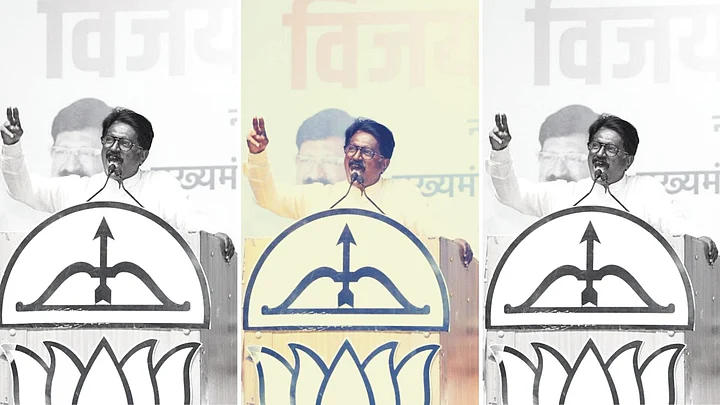As Modi government 2.0 swore in, ally Shiv Sena was represented by its lone MP, Arvind Sawant. After securing a massive win against Congress’ Milind Deora, with a margin of 1,00,067 votes in the Lok Sabha polls, the veteran leader appeared to be an easy choice for the Sena.
Sawant is replacing union minister Anant Geete, another Sena veteran who lost his Raigad seat in the recent polls, in the new Modi cabinet. Here’s a look at how the seasoned politician climbed the ranks within the Shiv Sena to secure a portfolio in the new government.
Climbing The Ranks Within Shiv Sena
Arvind Sawant took voluntary retirement from Mahanagar Telephone Network Ltd (MTNL) in 1995, where he worked as an engineer, once he was nominated to the Maharashtra Legislative Council when the BJP-Shiv Sena government was elected in the state. He held onto the position of an MLC till 2010.
Once the Congress-NCP alliance won the 2009 Assembly polls, Sawant was relegated to the position of a party spokesperson in the Shiv Sena.
In 2014, Sawant received a Shiv Sena ticket to contest from the South Mumbai constituency, which was originally a Congress stronghold. He faced off against the sitting Congress MP Milind Deora. Deora had bagged the Mumbai South constituency twice already by then – in 2004 with 1,37,956 votes, and 2009 with 2,72,411 votes. Sawant, however, defeated Deora by a margin of 1,28,564 votes in 2014.
He retained his seat with a wide margin in 2019 as well, proving his worth to the party leadership.
Over the years, Sawant has also remained a senior leader in the MTNL trade union.
A Controversial MP
Sawant has been a vocal critic of the PM Modi-led BJP government in the past. Sawant attacked the government’s implementation of demonetisation in November 2016. He questioned whether ‘exposing people to harassment for 50 days was patriotism’, Rediff reported.
He even went on to say that the Centre’s decision to use indelible ink to mark the fingers of those who exchanged Rs 500 and Rs 1,000 notes from banks was a mockery of democracy. “This is dictatorship, not democracy,” he was reported to have said.
In January 2019, Sawant went on to attack the government for not agreeing to a joint parliamentary committee probe into the Rafale deal, reported India Today.
It’ll be interesting to see if Sawant will go easy on the criticism he is known for hurling at the Modi government now that he too is a part of the cabinet.
(At The Quint, we question everything. Play an active role in shaping our journalism by becoming a member today.)
